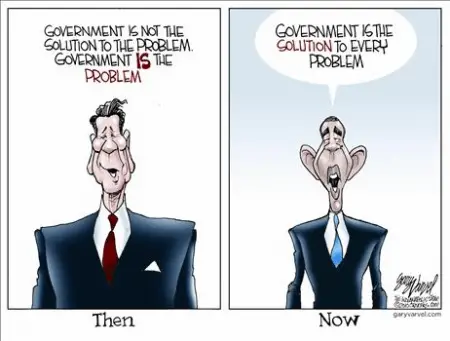Liberalism is an important political movement that helped shape many world governments well into modern times. However, liberalism broke off into two camps, bringing forth libertarians and other liberal-themed groups from among their ranks.
Summary Table
| Liberal | Libertarian |
| Generally believes in liberty and equality. | Generally upholds liberty. |
Definitions

A liberal is someone who upholds ideals based on liberty and equality. Liberals can either be followers of classical liberalism, which places importance on liberty, or social liberalism, which views equality as more important. While liberals support a wide and sometimes contradicting group of principles, it is common for them to support ideas promoting free speech and free press, civil rights, freedom of religion, gender equality, and democratic societies. Another common ground liberals share is a sense of skepticism on state control.
John Locke, a 17th century philosopher, is said to be the founder of liberalism as a distinct philosophical movement. He believed that an individual has an inherent right to life, liberty, and property, which governments must not impose upon. Liberalism during the Age of Enlightenment rejected the principles of nobility, state religion, the absolute authority of the monarchy, and the “God-given” unquestionable right of kings to rule. Liberals promoted democracy as an alternative to absolute monarchy.
In the U.S., Franklin Delano Roosevelt is credited with applying modern liberal policies, most importantly during the Great Depression. He initiated the New Deal, a series of social reforms to help the poor and unemployed, repair the financial system to protect it from another meltdown, and restore the economy back to health. Roosevelt’s success influenced many future presidents, including John F.
Kennedy, a self-described liberal.
A libertarian is described as someone who subscribes to libertarianism, which is a group of different philosophical beliefs upholding the freedom of choice and the fundamental right of individual judgment. Libertarians have different views about what the state can do, but they share a basic mistrust of authority. Some libertarian groups support capitalism, while libertarian socialists want to abolish it.
Libertarianism developed into various types. In the U.S., right-libertarianism has grown in popularity and is often acknowledged as the continuation of classical liberalism.
It favors social institutions that promote capitalism. Anarcho-capitalists seek to abolish the state and place property owners to rule their own societies. There are the minarchists, who believe that only the functions of government that can keep capitalism working are essential. Minarchists agree with the concepts of socio-economic inequality, wage labor, and the uneven distribution of wealth. They also believe that a minimal centralized form of government is essential. Left-libertarianism includes libertarian ideals of sharing Earth’s natural resources. There are libertarian socialists who apply socialist economic principles that seek to replace capitalism and private ownership with common ownership.
Liberal vs Libertarian
So what’s the difference between a liberal and libertarian? Remember that liberalism is the root of libertarianism.
Both ideologies believe in preserving the liberty of every individual. Liberals are divided into two camps: the new liberals, also referred to as left liberals or progressives, and the classic liberals, known as libertarians in the U.S. and right liberals in other countries. The new liberals look to the state as the only body that can protect the liberty of the people and advance their general welfare. Most liberals believe these things can be done through government agencies that regulate labor, break up huge monopolies, and bring education to the people. Most libertarians see the opposite, usually citing these ideas as further empowering the state and giving it more control over the population.





